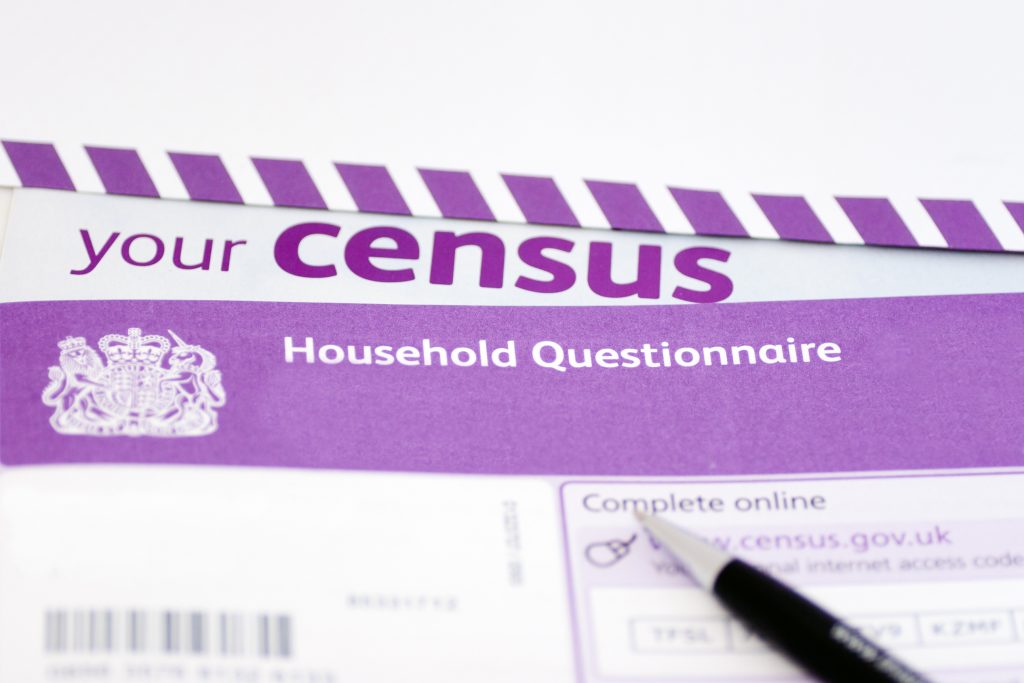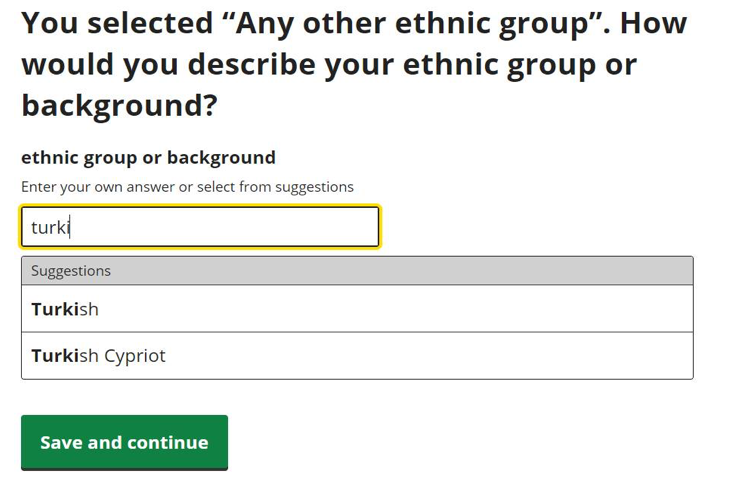Every ten years, the United Kingdom holds a population count. There is one happening this year too, on 21 March 2021, with households given a month to respond.
This once-in-a-decade survey captures vital details about all the people and households in the country; their ages, ethnicities, religious beliefs, income, health, and more.
It is also an important opportunity for us to realistically know how many Turkish and Turkish Cypriots are living in the country.
What Census 2011 told us about the Turkish community in England & Wales
A census has been carried out in England and Wales every decade since 1801, with the exception of 1941.
The last census of 2011 threw up fascinating insights about the British Turkish community.
We know from that 2011 survey, for example, that a total of 120,794 Turkish or Turkish Cypriots in England and Wales (101,721 and 19,073 respectively).
We also found out that in 2011 only 38 Turkish Cypriots lived in Wales, and that Enfield had the highest population of Turkish and Turkish Cypriots (16,704 and 5,922 respectively).
How many Turkish Cypriots actually live in the UK?
The Council of Turkish Cypriot Associations UK (CTCA) have been pressuring the authorities for the past decade to ensure a more accurate count of Turkish Cypriots in Britain.
For the past few months, CTCA has been working closely with the ONS and they are now keen to “help spread the message to the community” to take part in 2021 Census, so the survey fully captures the actual number of Turkish Cypriots in England, Wales and Northern Ireland (Scotland has deferred its census to 2022).
CTCA’s Secretary Sonya Karafistan told T-VINE:

“There are lots of estimates of how many Turkish Cypriots live in the UK. Some say 100,000, others half a million. Completing the upcoming census is the crucial first step in determining the actual size of the community, so it’s vital we make the most of this once-in-a-decade opportunity.
“We know Turkish Cypriots are very passionate about their roots and identity, but we’ve not always been good at conveying that to the authorities. For example, many Turkish Cypriots were not aware that they could fill in their ethnic identity in the last census, or perhaps they recorded it differently as “Turkish” or “Cypriot”.”
“For Census 2021, it’s vital our community accurately records their ethnic heritage as it will help create an informed picture of the kind of help and support our community needs from Government funding and investment programmes,” Ms Karafistan continued.
“We want every Turkish Cypriot – first, second, third generation and beyond! – to write ‘Turkish Cypriot’ on the Census form where it asks, ‘Any other ethnic group or background’.
“CTCA will circulate more guidelines in March, so the community knows where in the long Census form this question comes,” she added.
Why a population count is important
Run by the Office for National Statistics (ONS), Census 2021 will occur in England, Wales and Northern Ireland on 21 March 2021.
There is one form to complete per household, which can be filled in by hand and posted back, or completed online or by telephone.
The answers to the detailed form will be analysed and the results revealed in 2022. The data from that analysis will be made available to central and local authorities, organisations, and the general public. Individual forms, however, are not shared. These are locked away for 100 years.
Information gleaned from this year’s population count will offer vital insights into multiple areas of life in Britain. It will highlight areas of deprivation, and also show the ethnic make-up of the country. It will help planners understand our living arrangements, health, education and the jobs we do, all helping to inform policy at a local and national level for years to come.
Census 2021 will also help the government understand the impact of the coronavirus pandemic on society.
“A successful census will ensure everyone from local government to charities can put services and funding in the places where they are most needed”, Iain Bell, the deputy national statistician at ONS, said.
“This could mean things like doctors’ surgeries, schools and new transport routes. That’s why it is so important everyone takes part and we have made it easier for people to do so online on any device, with help and paper questionnaires for those that need them.”
How to complete Census 2021
Census 2021 will be the first to be run mostly online. Every household will receive a letter with a unique access code in March, allowing them to complete the questionnaire on their computers, phones or tablets.
Paper questionnaires will also be available on request, along with language support.
People will also be able complete the census over the phone with help from trained staff via our free phone contact centre.
The census will include questions about your sex, age, work, health, education, household size and ethnicity, with write-in options to allow everyone to identify as they wish.
For more information about the England and Wales count on 21 March 2021, visit census.gov.uk. Those in Northern Ireland will find information on this NI dedicated section.
People living in Scotland will find their census information for 2022 here.





